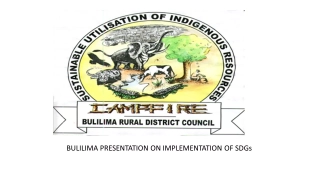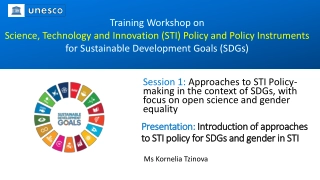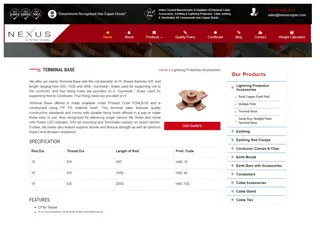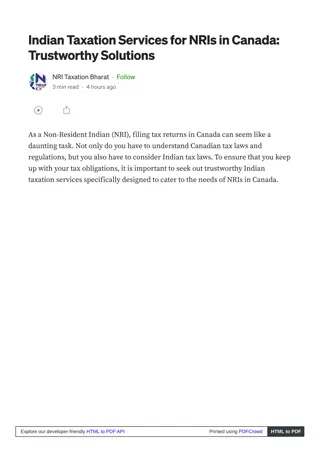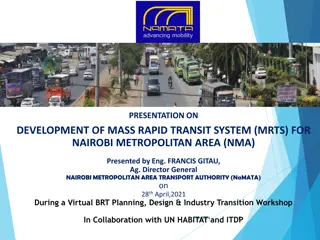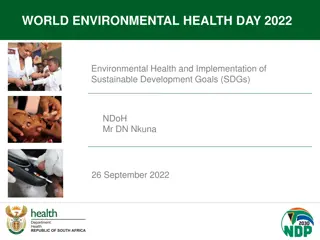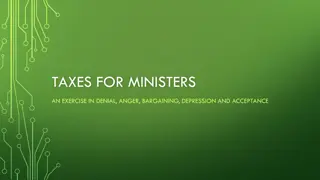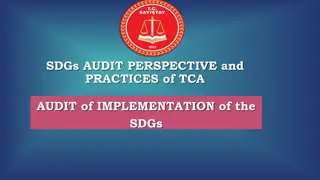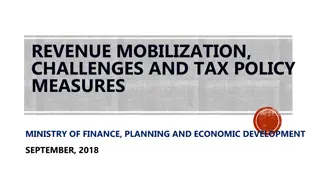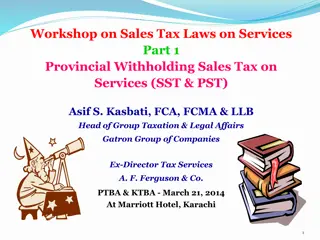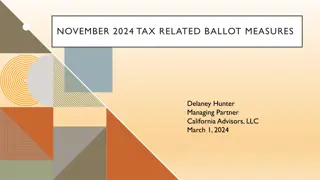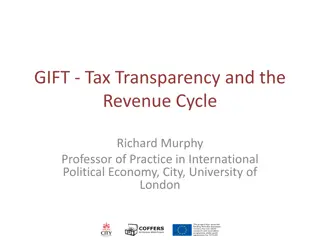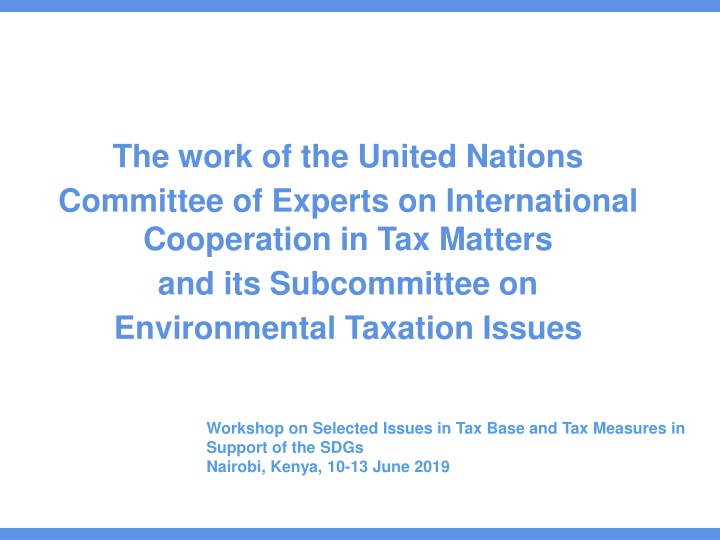
Workshop on Tax Base and Measures Supporting SDGs in Nairobi
The United Nations Committee of Experts on International Cooperation in Tax Matters and its Subcommittee on Environmental Taxation Issues organized a workshop in Nairobi, Kenya, focusing on tax base and measures supporting the Sustainable Development Goals (SDGs). The workshop aimed to provide guidance on environmental tax issues, particularly carbon taxes, with a handbook offering practical advice for developing countries on designing and implementing carbon taxation. The handbook covers conceptual frameworks, institutional frameworks, tax design, administration issues, revenue use, and the interaction of carbon taxes with existing policies, including country experiences.
Download Presentation

Please find below an Image/Link to download the presentation.
The content on the website is provided AS IS for your information and personal use only. It may not be sold, licensed, or shared on other websites without obtaining consent from the author. If you encounter any issues during the download, it is possible that the publisher has removed the file from their server.
You are allowed to download the files provided on this website for personal or commercial use, subject to the condition that they are used lawfully. All files are the property of their respective owners.
The content on the website is provided AS IS for your information and personal use only. It may not be sold, licensed, or shared on other websites without obtaining consent from the author.
E N D
Presentation Transcript
The work of the United Nations Committee of Experts on International Cooperation in Tax Matters and its Subcommittee on Environmental Taxation Issues Workshop on Selected Issues in Tax Base and Tax Measures in Support of the SDGs Nairobi, Kenya, 10-13 June 2019
The United Nations Subcommittee on Environmental Taxation Issues UN Tax Committee: subsidiary body of ECOSOC, comprising 25 members acting in their personal capacity Advance their work through 10 Subcommittees, including the Subcommittee on Environmental Taxation Issues The Subcommittee on Environmental Taxation issues is mandated to: Identify the most pressing issues where guidance may be most usefully assist developing countries in the area of environmental tax issues Pay particular attention to the application of carbon taxes, and report current country practices, policy considerations and administrative issues
The Handbook on Carbon Taxation Aimed to provide practical guidance on how to design and implement a carbon tax; Specific guidance for government officials of developing countries; Present (in a non-prescriptive way) why countries may choose carbon taxation among other instruments, and what are the options available; Intended also to provide a framework for policy makers of countries that are considering to implement fiscal measures for environmental protection.
Issues covered by the Handbook on Carbon Taxation a) Conceptual framework and motives for introducing a carbon tax b) Institutional and political framework, including how to support policy coherence and coordination among different governmental entities c) Designing a carbon tax d) Issues in the administration of a carbon tax e) Revenue use f) Interaction of carbon tax with other measures with other existing policies (including subsidies) g) Country experiences
Relevance of country experiences in the Handbook Given the practical nature of the Handbook, extensive attention will be devoted to country experiences. The Subcommittee welcomes the inputs of all interested countries which would like to share their experience to be included in the Handbook. To gather more information on the needs and barriers experienced by developing countries, the Subcommittee is cooperating with DESA Secretariat (the first pilot will being this capacity development Workshop in Nairobi).
Thank you http://www.un.org/esa/ffd/

